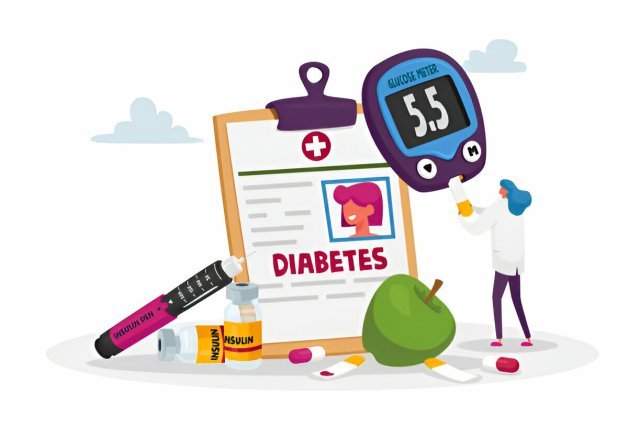Table of Contents
When Should You Go To The ER For Chest Pain?
Introduction
Chest pain is a common experience, often triggering a surge of anxiety and fear of a heart attack. While chest pain can indeed be a symptom of a heart attack, it’s important to remember it can also arise from various other, less serious causes. The key lies in understanding the red flags that indicate a potential heart attack and knowing when to seek immediate medical attention at the emergency room (ER).
When To Take Chest Pain Seriously: Recognizing The Warning Signs
While some forms of chest pain might be manageable at home, certain situations require urgent medical evaluation. Here are some key indicators that shouldn’t be ignored:
-
Classic Heart Attack Symptoms:
-
Crushing Or Squeezing Pain:
A pressure, tightness, or heaviness in the center of the chest that might radiate to the jaw, arm, shoulder, back, or neck.

-
Sudden Onset And Severe:
The pain appears abruptly and feels intense, unlike a gradual ache.
-
Worsening With Activity:
Exertion like climbing stairs or walking can intensify the pain.

-
-
Accompanying Symptoms:
These can include:
- Shortness of breath
- Sweating
- Nausea or vomiting
- Dizziness or lightheadedness
- Feeling faint or weak

-
Additional Risk Factors:
If you have known risk factors for heart disease, such as high blood pressure, high cholesterol, diabetes, or a family history, be especially vigilant about any chest pain you experience.

Remember: Don’t wait to see if the pain goes away on its own. If you experience any of these warning signs, call emergency services or proceed directly to the ER for immediate medical evaluation. Early intervention can be life-saving in cases of a heart attack.
When Chest Pain Might Not Be A Heart Attack
Not all chest pain necessitates a trip to the ER. Here are some situations where you might be able to manage the discomfort at home and follow up with your doctor:
-
Sharp Or Stabbing Pain:
This pain might be localized to a specific area of the chest and worsen with specific movements like coughing or laughing (musculoskeletal pain).

-
Burning Or Aching:
Heartburn or acid reflux can cause a burning sensation in the upper chest or abdomen, often accompanied by a sour taste in the mouth.

-
Tightness Or Pressure:
Anxiety or panic attacks can trigger chest tightness that usually comes on suddenly and subsides within minutes.
These types of chest pain are typically less concerning, but it’s important to see your doctor if the pain:
- Is persistent or recurring.
- Worsens over time.
- Is accompanied by other concerning symptoms like shortness of breath, fever, or unexplained weight loss.

Frequently Asked Questions (FAQs)
-
Can Anxiety Cause Chest Pain?
Anxiety can trigger chest tightness or discomfort, but it usually feels different from heart attack pain. Anxiety-related chest pain typically comes on suddenly, subsides within minutes, and doesn’t worsen with activity.

-
Should I Go To The ER For Heartburn?
Severe or persistent heartburn can be a sign of an underlying condition. If over-the-counter medications don’t provide relief or you experience frequent heartburn, consult your doctor.
-
What If My Chest Pain Comes And Goes?
Occasional, fleeting chest pain might not be a cause for concern. However, recurring or persistent chest pain, even if it comes and goes, warrants a doctor’s visit to rule out any underlying issues.
-
How Can I Tell The Difference Between A Muscle Strain And A Heart Attack?
It can be difficult to differentiate without medical evaluation. If you’re unsure and the pain is severe or accompanied by other concerning symptoms, seek immediate medical attention.
Conclusion
Chest pain can be a source of worry, but understanding the difference between a potentially serious heart attack and other causes empowers you to make informed decisions about your health. When in doubt, always err on the side of caution. If you experience any concerning chest pain, particularly if it’s accompanied by shortness of breath, sweating, nausea, or radiating discomfort, don’t hesitate to call emergency services or seek immediate medical attention at the ER. Early intervention can significantly improve outcomes in cases of a heart attack.
For less alarming chest pain, keeping a record of the frequency, duration, nature of the pain, and any accompanying symptoms can be helpful for your doctor. This information can aid in diagnosing the underlying cause and recommending appropriate treatment. By being proactive about your health and adopting a heart-healthy lifestyle, you can minimize your risk of both heart disease and future episodes of chest pain.

References
- American College of Cardiology: Provides information on recognizing a heart attack and when to seek emergency medical attention.
- Mayo Clinic: Offers a comprehensive overview of chest pain, including differential diagnoses and treatment options.
- National Heart, Lung, and Blood Institute: Provides reliable information on various causes of chest pain and self-care tips.
Discover more from Pain Relief Methods
Subscribe to get the latest posts sent to your email.
